c0d5579: Thanks for the info.
------------------------------------------------------------------------------------
Endgame
The American decision not to intervene effectively eliminated whatever slim chance the French had at success. In early September, the Viet Minh concentrated their massed assaults against enemy positions at Dominique, Eliane, Claudine, and Huguette. For a month, the two sides seesawed back-and-forth in absolutely fierce fighting. Every time one side held the upper hand, the other side found a way to counter it. The French grew increasingly exhausted with dwindling reserves, their planes providing reinforcements being regularly blown out of the sky by relentless enemy anti-aircraft fire. Meanwhile, the Viet Minh had their own problems to deal with: most notably a lack of advanced medical care in which to treat the wounded. However, it was the French who were being grinded away. On September 22nd, their main airfield was captured; with that gone, their main source of aerial resupply was now cut off.
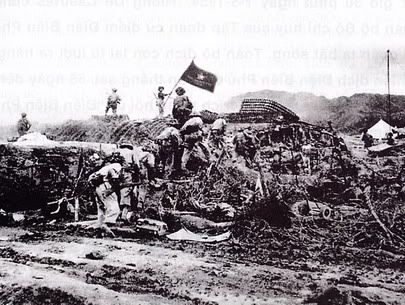
The fighting lasted until October 7th. Exhausted, their defenses completely overrun, and supplies hard to come by, the French decided enough was enough. Faced with over 25,000 enemy soldiers, General Christian de Castries – the French commander at Dien Bien Phu – chose not to needlessly slaughter his remaining forces. At 5:30 PM, de Castries radioed his superiors in Hanoi one final message:
“The enemy has overrun us. We are blowing up everything [that could be of use to them]. Vive la France!”
The next day, Dien Bien Phu surrendered to the Viet Minh. Almost 12,000 defenders were now prisoners-of-war. France had put everything on the line to defend this base…only to be humiliated once again.
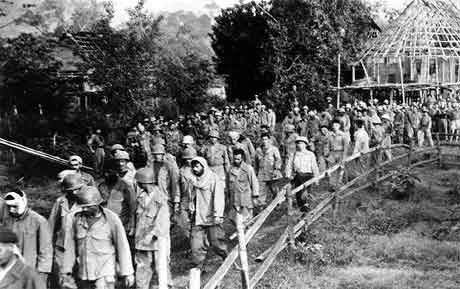
Just as Collins predicted, the focus after this battle shifted quickly from war to peace. By a twist of timing, a previously-arranged international meeting was convened the day before Dien Bien Phu fell in Geneva, Switzerland to bring the First Indochina War to an end. At the time, the French Government knew it needed to extract itself from the quagmire and somehow get out intact. News of the French defeat in Vietnam greatly undermined their negotiating position heading into the talks. Ho Chi Minh, leader of the Viet Minh, attended the conference with the understandable mindset of a victorious leader who held the upper hand. Secretary of State Dean Acheson also attended the Geneva Conference as the American representative. He was under strict orders from the President not to commit to anything at the conference. Acheson was there only to observe diplomatic dealings between the French and the Viet Minh – in keeping with America’s public “this is France’s problem” message. Barred from having any significant role in the proceedings, Acheson – from the moment he descended from the plane in Geneva – couldn’t help but look uncomfortable during the conference. By nature he was a doer, not a bystander.
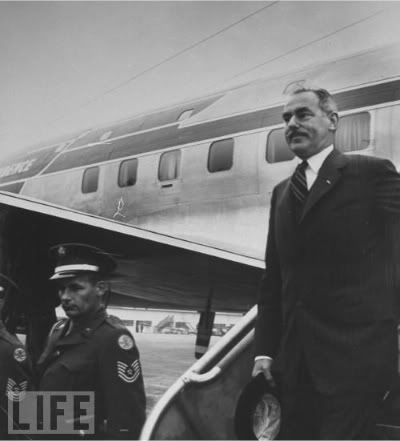
In the negotiations that followed, Vietnam was partitioned into two zones along the 17th Parallel: North Vietnam and South Vietnam. Emperor Bao Dai, the French puppet ruler, would remain in charge of the Southern half (named the Republic of Vietnam) while the Viet Minh would get the Northern half (ironically named the Democratic Republic of Vietnam). It would be a temporary partition until nationwide elections could be held at a latter date to determine the future government and bring about national unification. Both halves of Vietnam would be barred from entering into military alliances with her other Indochinese neighbors and couldn’t seek military aid beyond basic self-defense requirements. Any international force still within Indochina had to completely withdraw as soon as possible. With those peace terms, the First Indochina War was finally over.
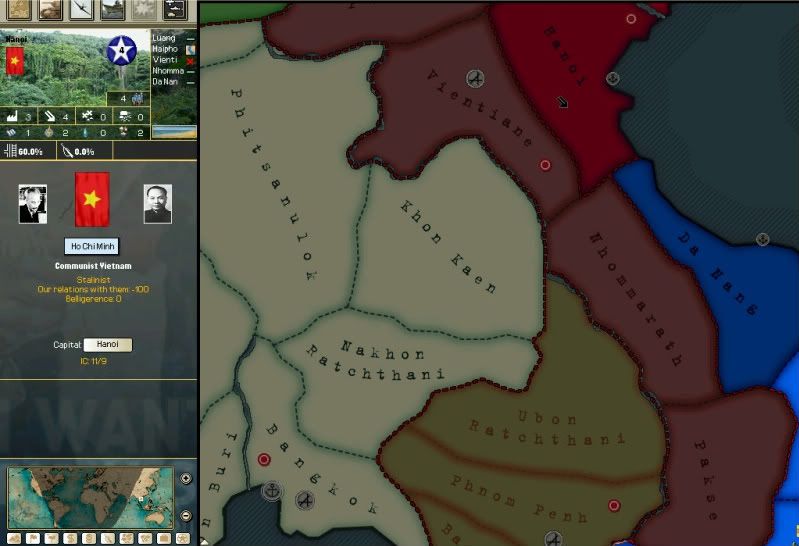
In the aftermath of the cessation of hostilities, a mass migration occurred. French forces withdrew to South Vietnam from the North while the Viet Minh headed to North Vietnam from the South. The United States played a role in the mass migration, using her navy to transport 310,000 Vietnamese civilians, soldiers, and non-Vietnamese members of the French Army from the North to the South. In all, almost one million Northerners fled south to avoid living under Communist rule while nearly 200,000 Southerners headed north to embrace Ho Chi Minh’s new government. Catholics in particular fled south to avoid impending religious persecution under Communism.
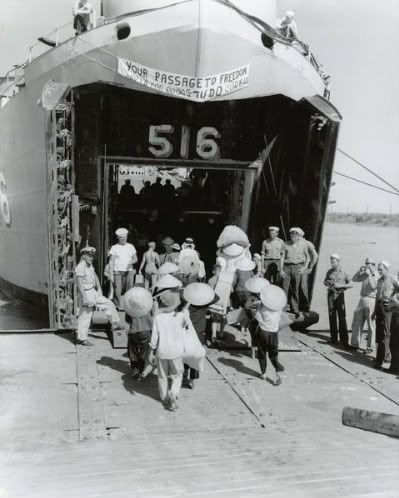
1955, which began with a colonial struggle between France and the Viet Minh over the future of Vietnam, ended with Vietnam divided into two countries separated by the 17th Parallel. North of the line, Ho Chi Minh set up shop in Hanoi. South of the line, staunch anti-Communist Ngo Dinh Diem was sworn-in as Prime Minister in Saigon. The main fighting was now over…but American involvement in the region had only just begun.
------------------------------------------------------------------------------------
Before I get to Ngo Dinh Diem, I need to travel back in time to May 1955 to do an Europe update covering Germany and Yugoslavia. Since this is 1955, I need to borrow Marty McFly's DeLorean.

, so I guess the next president will invade...
, so I guess the next president will invade...





